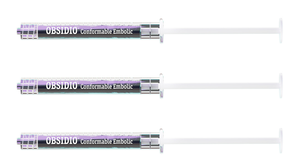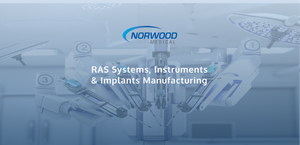March 17, 2002
Originally Published MPMN March 2002
SPECIAL
Antimicrobial systems multiply
|
A plastic compound incorporating an antimicrobial agent prevents the growth and migration of microorganisms on medical devices. |
While basic hygiene procedures are the major factor in controlling bacterial infections, the use of antimicrobial systems in plastics can offer added protection at the product level. Two new silver-ion products from plastics suppliers promise to give medical devices antimicrobial qualities.
"Antimicrobial systems are no longer used only to protect a plastic material itself from degradation by microorganisms, but also to affect microbe populations found at the surface," says Julie Simmons, chemist at Wells Plastics Ltd. (Stone, Staffs, UK; www.wellsplastics.com). Wells is a compounder of additive master batches. The company has developed a technology that encapsulates silver-ion antimicrobial systems within a soluble matrix. According to Wells, use of the silver-ion formulations in wound dressings, urinary catheters, and other medical products can help to reduce infection.
Tests conducted by the company on polymeric tubing and fibers have shown the efficacy of the antimicrobial systems. Plastic tubing containing 2% of a silver-ion master batch was tested against Pseudomonas aeruginosa, Staphylococcus aureus, and Escherichia coli. Against initial inoculum concentrations of 10,000 to 80,000 bacteria, the tubing achieved reductions of log 3, or 99.9%, reducing each of the three bacteria populations to <100 colony-forming units.
Meanwhile, another plastics company, Ensinger GmbH (Nufringen, Germany; www.ensinger-online.com) has joined forces with a firm offering antimicrobial technology to produce plastics that contain their own disinfectants. The firm recently signed an agreement with AgION Technologies (Beverly, MA; www.agion-tech.com) allowing it to offer plastic incorporating AgION's antimicrobial compound.
The AgION material is based on a silver-ion delivery system that prevents the growth and migration of bacteria, yeast, mold, and fungus on any product to which it is applied. The plastics offered by Ensinger constitute new antimicrobial compounds that combine the inorganic silver ions with a patented delivery structure.
Ensinger medical marketing specialist Fran Alder says that the company has an exclusive license to add AgION to nylons, and a nonexclusive license to compound it with other plastics. "This material addresses a critical issue with plastics," he says. "Are you really sterilizing plastics when you follow autoclaving procedures?"
Applications of the new compounds thus far have included surgical instrument handles and thermoformed trays.
The antimicrobial agent is able to withstand pH levels from 3 to 10 and temperatures up to 800°C, which makes it compatible with virtually any manufacturing and operating environment. In an acute oral toxicity study, the AgION agent was shown to be less toxic than ordinary table salt. The material has passed the ISO 10993-1 biocompatibility test for medical implants.
Benjamin Lichtman, Norbert Sparrow, Katherine Sweeny, Zachary Turke, and Susan Wallace
Copyright ©2002 Medical Product Manufacturing News
You May Also Like



